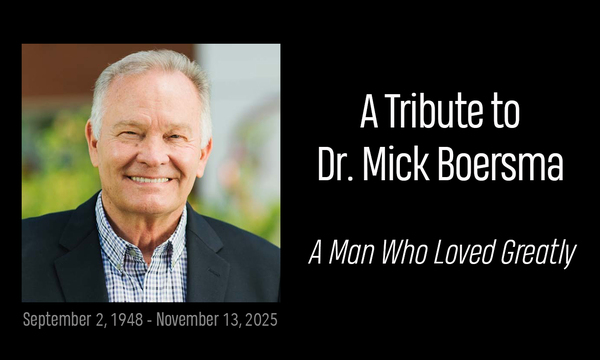This morning, toward the end of my prayer walk, I waved at three people (all from the same family, I think) who were standing at the top of their driveway. They smiled and waved back, but didn’t make any attempt to restrain their off-leash dog — which suddenly bolted in my direction, growled menacingly and started jumping up on me. The neighbors called out, “Don’t worry, he won’t bite” (I thought, “He won’t bite ˛â´ÇłÜ…!”). Fortunately, I didn’t get bitten, and I was able to fend off the dog and continue toward home. But as I walked away, I felt my frustration growing, and decided I needed to use this opportunity to practice forgiveness.
Many years ago, I was in someone’s office and noticed an academic book on the bookshelf — one of my books — that I had been searching for during the previous two years. I had remembered lending the book to someone, but until that day, I couldn’t remember to whom. When my friend stepped out of the room, I pulled the book off the shelf and (as I guessed) found my name written inside the cover. (In case you’re wondering, yes, I “stole” it back without a word.) But in my heart, I found myself perturbed to have discovered this very expensive book in my friend’s office, even though I knew that he would never have intentionally stolen it. I decided in that moment that I needed to practice forgiveness once again.
To clarify, what I mean by “practicing” forgiveness in this post is not equivalent to simply exercising forgiveness. It doesn’t just mean “forgive the person who wronged you.” Most certainly, I want you to do that, but in this article, I intend something more specific. I’m using the word “practicing” in the sense of repeating an action to develop a habit (like “practicing” the piano).
I have learned that I need to mentally note micro-frustrations I experience and use those moments to “practice” forgiveness in preparation for substantial wrongs that I am likely to undergo in the future. Small wrongs present a marvelous opportunity to learn forgiveness when the stakes are low — as in the examples of the off-leash dog and the lost book.
Obviously, I’m not just practicing forgiveness in such moments. The two examples I shared were moments of actually forgiving another person. But they were micro-wrongs — small enough to easily address.
All of us need to build up our forgiveness muscles. We do this first and foremost through acknowledging the forgiveness that we have received from the Lord (Ephesians 4:32; Colossians 3:13). But I think that consciously forgiving micro-wrongs is one way to “train yourself for godliness” (1 Timothy 4:7).
Many people reading this post have experienced deep injury, betrayal and grief from people we have loved and cared for. Others of us have not been wounded so deeply. But both those who have and those who have not are likely to face substantial hurts in the future. Will we be ready to forgive a truly egregious wrong when God calls us to do so? We are unlikely to readily forgive the terrible wrongs yet ahead of us unless we have practiced forgiving the smaller stuff.
Your boss never compliments you for your creativity and hard work. Your neighbor plays his music too loud and too late. Your spouse thoughtlessly brings up a painful memory from your past. A stranger makes an insensitive comment about your ethnic heritage. A roommate leaves her dirty dishes unwashed. A friend doesn’t call back. A classmate shows up sick and sits in the chair directly behind you. All these insensitivities and micro-wrongs are opportunities to practice forgiveness in preparation for much deeper hurts and injuries you are likely to face in the future that you will have to forgive.
Practicing forgiveness of micro-wrongs also helps us develop God-honoring self-talk. Some of us internally gripe about every hardship we encounter and every person who makes life difficult. Repetitive forgiveness of the small stuff softens our hearts toward others, prepares us for effectual prayer (lack of forgiveness ), and shapes us into people who are full of the Spirit and true love for others.
This and other resources are available at .
Notes
That is, the morning I originally wrote this post.
 Biola University
Biola University



.jpg)
.jpg)